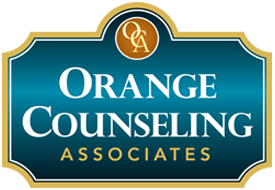Substance abuse and addiction
Addiction is dependence on a particular substance, generally alcohol, an illegal drug, or a prescription medication used inappropriately or in excess. The addiction begins with the abuse of the substance. After a period of time, often very quickly, the abuse becomes an addiction. An addiction is present when the use of the substance increases in frequency and amount and becomes difficult or impossible to stop. The abuse and addiction often lead to negative consequences, such as failure to meet work, school, or family obligations and relationship problems with family and friends. It is often associated with impulsive or illegal behavior (DWIs or stealing) and diminished interest in other activities. The addiction may be psychological and physical. Sudden withdrawal from the substance can lead to serious physical symptoms or even death. Many people deny that they have a problem and often hide their behaviors from others.

How Can Counseling Help?
Counseling with individuals with addiction problems begins with a thorough discussion of the nature of the problem and acknowledgment that there is a problem that needs to be addressed. Initially, attainable short-term goals are agreed upon as the client and counselor work toward overcoming the addictive behavior. The major short-term goal is sobriety, which oftentimes can be attained in outpatient treatment. When outpatient counseling is not successful in curbing the behavior, detox services and/or inpatient rehabilitation might be required.
Once sobriety is attained, counseling focuses on identifying the sources of the problem. Oftentimes, the problem is an outgrowth of troublesome feelings. It is not uncommon that that the addictive behavior is an effort to cope with  depression or a sense of failure. As is often the case, people self-medicate with psychoactive substances in an effort to control anxiety, impulses, or painful moods. The general counseling approach is person-centered along with motivational interviewing techniques. The approach is an effort to engage the client in an effort to find their own motivations to stay sober and to lead a productive lifestyle without the use of alcohol or drugs. With the support and encouragement of the counselor, and oftentimes with 10-step group attendance, the client successfully meets long-term goals and moves on to a more productive and satisfying life.
depression or a sense of failure. As is often the case, people self-medicate with psychoactive substances in an effort to control anxiety, impulses, or painful moods. The general counseling approach is person-centered along with motivational interviewing techniques. The approach is an effort to engage the client in an effort to find their own motivations to stay sober and to lead a productive lifestyle without the use of alcohol or drugs. With the support and encouragement of the counselor, and oftentimes with 10-step group attendance, the client successfully meets long-term goals and moves on to a more productive and satisfying life.




